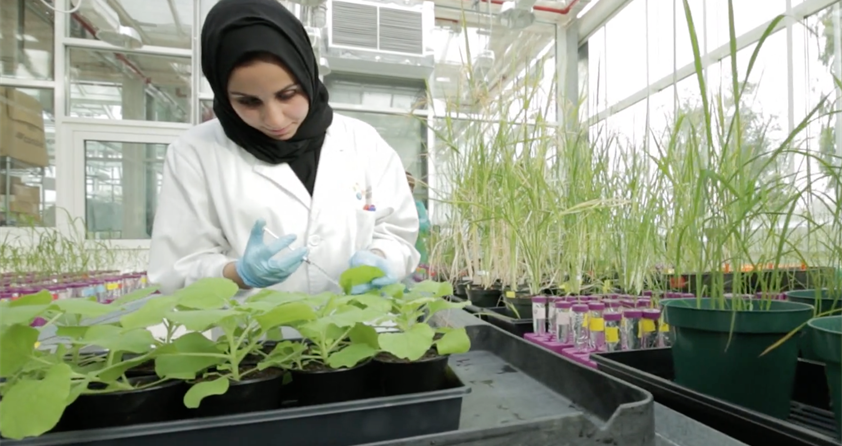By the year 2050, the world will be faced with the challenge of feeding 9 billion people. Food security is by consequence a major global concern. This is especially true for the semi-arid regions of the world in Africa, Asia and the Middle East. Farmers from those regions who cultivate staple foods such as millets play a crucial role in that equation.
Posing a major challenge, a particularly harmful parasitic weed called Striga is responsible for destroying entire cereal yields, causing billions of dollars in losses annually. Striga seeds, present in the soil, attach themselves to the roots of healthy host plants and drain them of water and nutrients. This essentially destroys the crops.
In an effort to tackle this important problem, Dr. Salim Al-Babili’s research at KAUST focuses on understanding Striga related hormones in pe arl millet. The germination of Striga seeds is triggered by chemical signals from the cereal plants. Professor Al-Babili therefore seeks to shed light on the biological compounds in pearl millet triggering the Striga infestation.
The end goal is to find a way to induce this Striga germination process in the absence of host plants. This would allow for the reduction and eventual elimination of Striga seed banks in infested soils.

